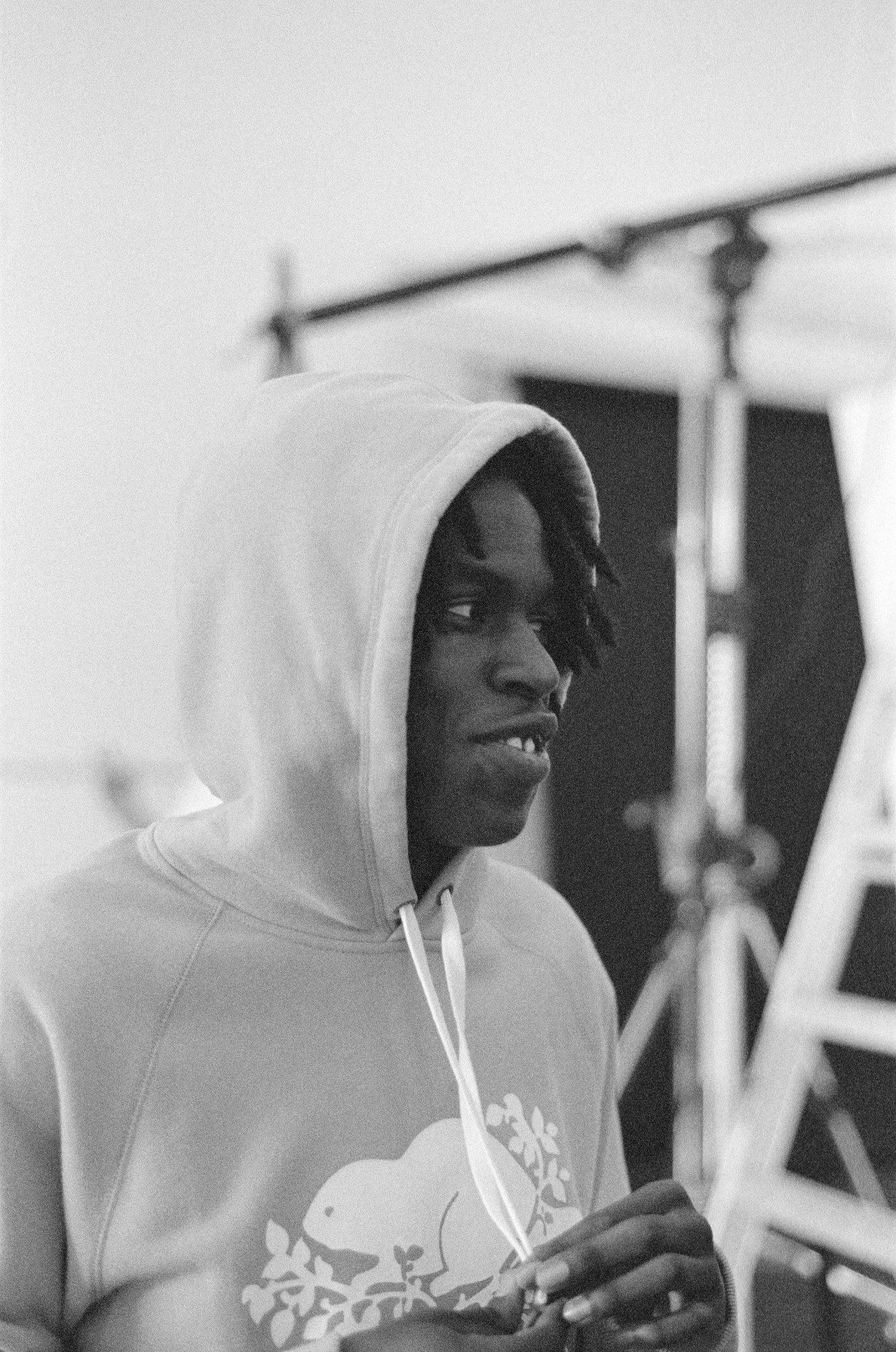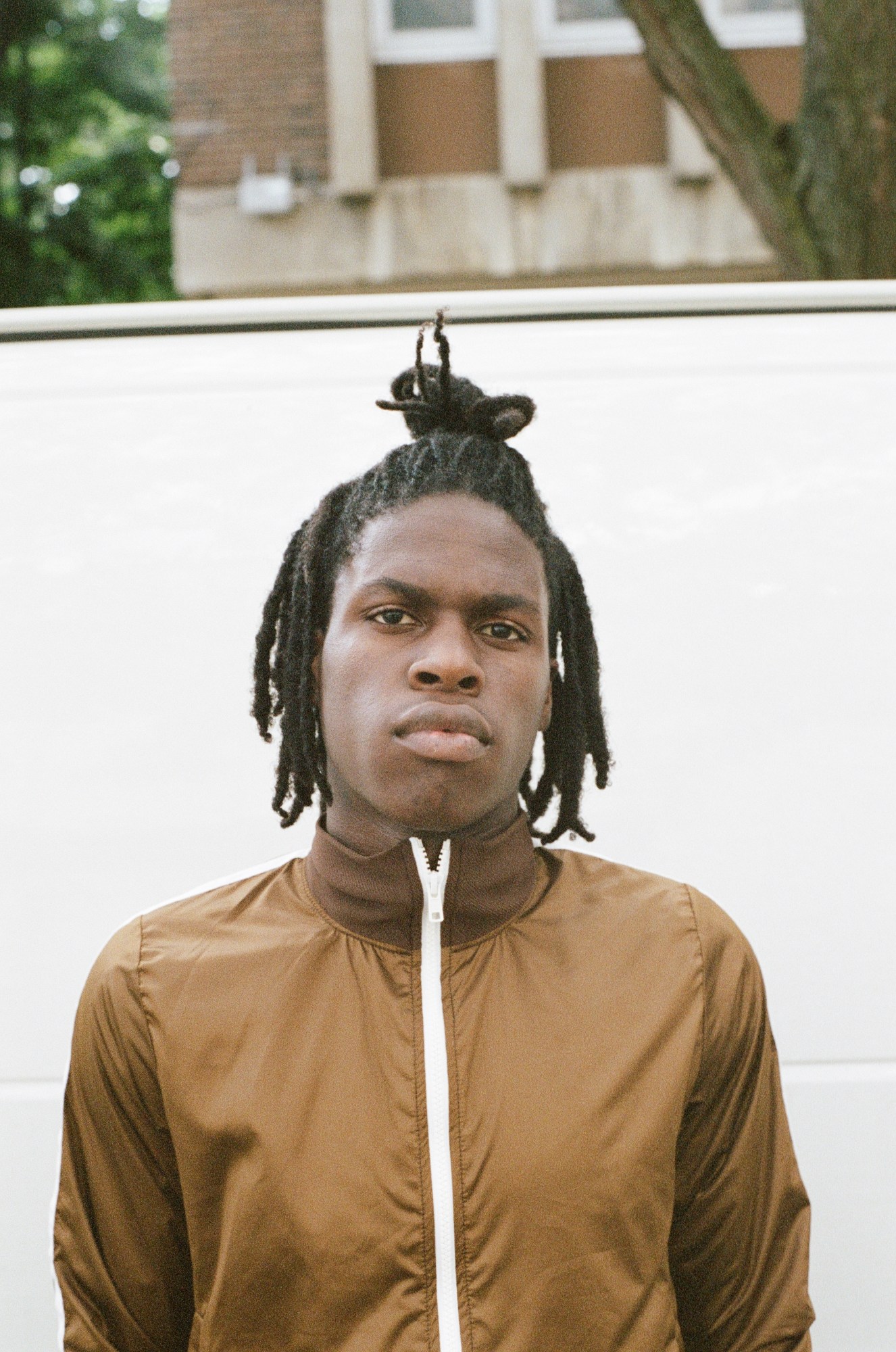Radical acceptance, the spiritual writer Tara Brach theorizes, refers to “clearly recognizing what we are feeling in the present moment and regarding that experience with compassion.” It’s an approach to self that Daniel Caesar would quietly identify with. His debut album, Freudian, is an examination of his own romantic id, yet it’s far from lacerating. Jealousy, lust, heartbreak, nostalgia, bliss — in Daniel’s world, no feeling or experience is inherently bad. It simply is. “We find love, we get up / we fall down, we give up,” he repeats with feeling on “We Find Love,” giving life to a compassionate and patient conception of not only love but also selfhood.
Barely old enough to drink, the honey-voiced Toronto upstart has produced one of 2017’s most complete and deeply felt albums, a ten-track opus dedicated to the ups and downs of a romantic relationship and to Daniel’s own inner-workings. Buzzing since 2014 off his first two EPs, Praise Break and Pilgrim’s Paradise, (his 2016 song with River Tiber, “West,” was recently flipped by SZA), Caesar released Freudian independently at the end of August and has since sold out every single one of his upcoming shows in North America. There’s a reason why: swirling with a timeless, meticulous musicality that blends gospel (he samples Kirk Franklin), R&B, retro harmonies, and wistful Beatles-tinged guitar, Freudian is the musical equivalent to receiving a big hug. It’s patient, introspective, incredibly sexy, and unashamedly authentic.
Freudian charts the emergence of Daniel Caesar the lover, the musical wunderkind, the neurotic, and the human. After a few songs, Daniel — buoyed by an all-star cast of female voices including Syd, H.E.R., Charlotte Day Wilson, and Kali Uchis — becomes a tangible, calming force, guiding us through the depths of his mind. The result is a remarkable feat of self-control, self-awareness, and vulnerability that makes you want to sob and smile at the same time. I mentioned he’s 22, right?
Fresh off performing new music with Chance the Rapper on The Late Show, Daniel took a moment to talk about love, making his dad proud, and the power of his music to make people (like me) cry.
What’s the significance of the album title? Freudian is about love, but it also feels like a confessional.
This is a relationship album, but it’s me talking to myself. And so throughout the album [I use myself] as someone I can speak to and that can speak back to me. So it’s a very introspective project. It’s looking at: why am I the way that I am?

The album deals with the ups and downs of a relationship, but in an optimistic way. How do you look at love?
It’s almost like double-think — you know when you know something, but you only choose to know it when it suits you? We all know that relationships start dope and that eventually it’s gonna get bad. How many relationships do we really know that are great forever? So I am comfortable with things getting bad — early on in life I became comfortable with things not going the way I wanted them to go, like with unrequited love. And I think at a certain point I came to rely on that. Those feelings of frustration… when I feel that way, that’s when I get my best work. I’m not shooting for things to fall apart all the time, but I also kind of accept that.
Your approach to music isn’t how most 22-year-olds go about it; it’s patient, and it feels rooted in traditional musicality. Why go this more old school route?
Now, people say it’s old school. But that’s not old school to me. That was my world. The people I admired growing up… that was the shit they were trying to do. In some ways, [the way I make music] could almost be elitist. But for me it’s like, this is what’s necessary to be a great artist. People like a John Legend or a John Mayer… people who make music like that, whose albums aren’t about finding a hot beat and turning it into a single but [instead] about exploring your brain and making songs that people are going to cry to. That’s something that I figured out at a real young age, that I could make people cry with my music.
Why is being an independent musician important to you?
Independence is power. My dad does music as well and I would always share with him that I wanted to do music one day. From his perspective, if you want to make a million dollars, you have to give away your art to someone else. Obviously you want to make your parents proud and all that. So [being independent] was a way to follow my dreams and do what I want to do — I want to make music, but I also get to go home and be like, “Look, Dad, I still have all my masters and all my publishing. I’m good. No one is taking advantage of your son.” Owning my own music is just good for my confidence. I’m gonna have something to give to my kids one day.
Last question. This is a love album. We have to know: are you seeing anyone?
Oh man… no, I’m not. I’m not. You can put it in print. Let the ladies know that I’m out here.
